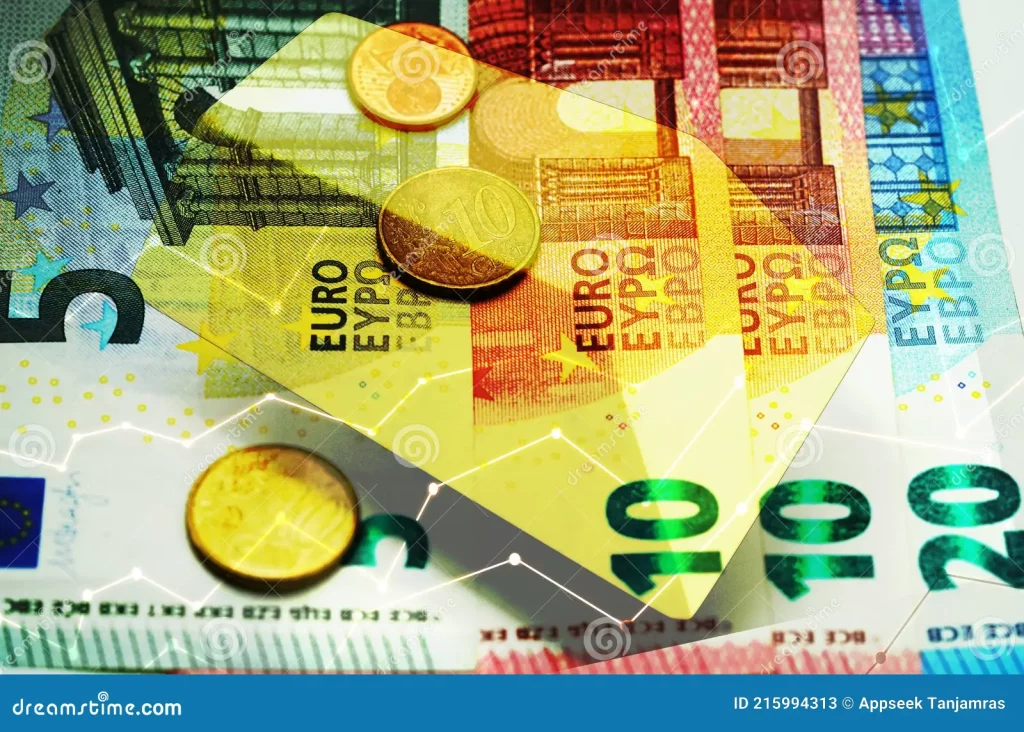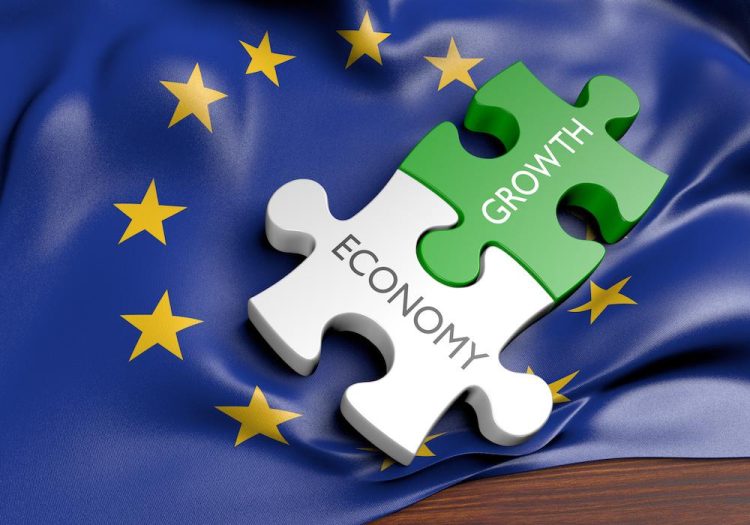Introduction
In recent years, the Euro has experienced significant fluctuations in its value against major global currencies, particularly the U.S. dollar. As the Eurozone faces various economic challenges and opportunities, the strength of the Euro has become a topic of intense scrutiny. Is the Euro poised for a breakout, or are its current trends merely a temporary phase? This article will explore the current trends affecting the Euro’s value, the economic factors driving its strength, the implications for businesses and investors, and projections for the currency in the coming months.
1. Current Trends Affecting the Euro’s Value
The value of the Euro has seen notable volatility in recent months, driven by a mix of internal and external factors. To understand where the Euro might be headed, it is essential to consider the key trends influencing its value.
Global Economic Recovery Post-Pandemic
The global economic recovery from the COVID-19 pandemic has been a major factor influencing the value of many currencies, including the Euro. As economic activity picks up across the world, there has been a renewed focus on the Eurozone’s recovery, with investors assessing how well the region is coping with post-pandemic challenges. The pace and sustainability of the recovery will likely determine whether the Euro will maintain or strengthen its current position.
Interest Rates and Inflation
Interest rates set by the European Central Bank (ECB) and inflation expectations are critical drivers of the Euro’s value. The ECB’s stance on monetary policy, especially in terms of interest rate adjustments, plays a crucial role in determining the attractiveness of the Euro for investors. Higher interest rates tend to attract capital flows into the currency, driving up its value. On the other hand, persistent low interest rates could dampen demand for the Euro and lead to weaker performance.

Geopolitical and Global Economic Events
Geopolitical developments, such as trade negotiations, diplomatic tensions, and shifts in global supply chains, can have a significant impact on the Euro’s strength. For example, the ongoing challenges surrounding Brexit, EU trade agreements, and the economic implications of U.S.-China relations can affect investor confidence in the Eurozone and, in turn, the Euro.
Market Sentiment and Speculation
Investor sentiment and market speculation also play a crucial role in shaping the Euro’s value. The currency markets are highly sensitive to expectations regarding future economic performance, government policies, and global events. In some cases, short-term fluctuations in the Euro’s value may be driven more by sentiment than by fundamental economic factors.
2. Key Economic Factors Driving the Currency’s Strength
The strength of the Euro is determined by a variety of economic factors, some of which are within the Eurozone’s control, while others are influenced by external developments. Understanding these factors is essential for assessing the Euro’s future trajectory.
Eurozone Economic Performance
The overall economic performance of the Eurozone is one of the most important factors driving the Euro’s strength. A robust economy with healthy growth rates, low unemployment, and stable inflation is conducive to a stronger currency. Conversely, economic slowdowns, rising unemployment, or fiscal challenges can weigh on the Euro. Recent recovery in the Eurozone has been fueled by an increase in consumer spending, higher demand for exports, and government stimulus measures. However, challenges such as high debt levels in some member countries and structural reforms that are still needed in others may limit the Euro’s growth potential.
Monetary Policy by the European Central Bank
The ECB’s monetary policy decisions have a direct influence on the Euro’s strength. The central bank’s actions on interest rates, quantitative easing (QE), and other monetary measures can make the Euro either more attractive or less attractive to investors. When the ECB raises interest rates or signals tightening policies, the Euro tends to appreciate due to the higher returns on investments in the Eurozone. In contrast, prolonged low interest rates and aggressive monetary easing could lead to a depreciation of the Euro as investors seek higher returns elsewhere.
Trade Balance and Current Account
The Eurozone’s trade balance and current account are key indicators of the region’s economic health and the demand for the Euro. A surplus in trade, particularly in the form of exports, tends to strengthen the Euro, as foreign buyers need to purchase Euros to pay for Eurozone goods and services. A trade deficit, on the other hand, can weaken the Euro as it indicates that the region is importing more than it is exporting. The Eurozone’s strong manufacturing sector and export-oriented economy, particularly in countries like Germany, have contributed to the Euro’s relative strength.
Global Risk Appetite and Safe-Haven Status
In times of global uncertainty or market turmoil, investors often flock to safe-haven currencies like the U.S. dollar or the Swiss franc. However, the Euro can also benefit from a shift in global risk appetite. For example, if investors view the Eurozone as a stable region with favorable economic prospects, they may increase their demand for Euros, pushing up its value. Furthermore, the Euro has gradually gained some safe-haven status, especially in comparison to currencies from emerging markets that are more vulnerable to geopolitical tensions and economic instability.
3. What a Strong Euro Means for Businesses and Investors
A strong Euro can have both positive and negative effects on businesses and investors. Understanding these implications is crucial for those operating within or investing in the Eurozone.
For Businesses
A strong Euro can make exports from the Eurozone more expensive for foreign buyers, which could reduce demand for European goods and services in global markets. This is especially relevant for export-heavy economies like Germany, which could see a slowdown in demand for its products if the Euro continues to appreciate. However, a stronger Euro can also lower the cost of imports, which can be beneficial for European businesses that rely on foreign goods or raw materials. Additionally, companies with international operations may benefit from favorable exchange rates when converting foreign revenues back into Euros.
For Investors
For investors, a strong Euro can lead to capital appreciation in the value of Euro-denominated assets. This includes investments in Eurozone stocks, bonds, and real estate. However, a stronger Euro can also negatively affect the returns of non-Eurozone investments, particularly those in countries whose currencies depreciate against the Euro. Additionally, a strong Euro can reduce the returns of foreign investors who hold Euro-denominated assets, as currency fluctuations can erode the value of their investments.
4. Projections for the Euro in the Coming Months
As we look ahead, several factors will influence the Euro’s trajectory in the coming months. Projections for the currency depend on the performance of the Eurozone economy, global economic conditions, and key policy decisions by the ECB.
Economic Recovery Outlook
The pace of the Eurozone’s economic recovery will likely be a key determinant of the Euro’s strength. If the region continues to show signs of growth, with stable inflation and low unemployment, the Euro may appreciate against other currencies. However, if recovery falters or if new challenges arise, such as a resurgence of COVID-19 or geopolitical tensions, the Euro could face downward pressure.
ECB Policy and Interest Rates
The ECB’s stance on interest rates will be closely monitored by investors. If the central bank signals a tightening of monetary policy, perhaps in response to rising inflation or a more robust recovery, the Euro could strengthen. Conversely, if the ECB continues with accommodative policies to support economic growth, the Euro may struggle to maintain its current strength.
Global Economic Events
Global economic factors, such as U.S. monetary policy, China’s economic performance, and geopolitical developments, will continue to influence the Euro’s value. Shifts in the global risk appetite and trade dynamics will play a pivotal role in determining how the Euro performs relative to other currencies.
Conclusion
The Euro’s strength is influenced by a wide range of economic factors, from Eurozone growth to ECB monetary policy to global geopolitical events. As the global economy continues to recover from the pandemic and as the Eurozone grapples with both opportunities and challenges, the Euro’s future remains uncertain. However, if the Eurozone can maintain strong economic performance, adapt to global shifts, and benefit from favorable monetary policies, the Euro could be poised for a breakout, offering both opportunities and challenges for businesses and investors alike.






























